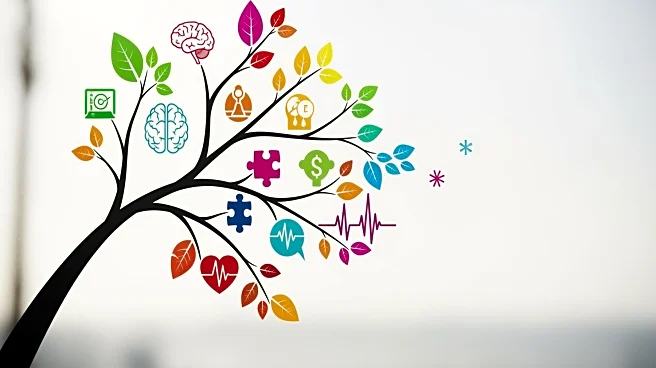What's Happening?
The World Health Organization's mRNA Technology Transfer Programme aims to establish sustainable regional production of mRNA-based health products, focusing initially on COVID-19 vaccines. The programme,
launched in 2021, has expanded to include 15 partners, with a hub located in Cape Town, South Africa. The initiative seeks to build capacity for mRNA production in low- and middle-income countries, enabling rapid response to health emergencies. The programme has evolved to support the development of other mRNA-based vaccines and therapeutics, such as monoclonal antibodies, addressing diseases that threaten these regions.
Why It's Important?
The mRNA Technology Transfer Programme represents a significant step towards global health equity, providing low- and middle-income countries with the tools and knowledge to produce mRNA vaccines locally. This capacity-building effort enhances regional preparedness for future pandemics and health emergencies, reducing reliance on external sources and improving access to life-saving vaccines. The programme's focus on expanding mRNA applications to other diseases could lead to broader health benefits and strengthen healthcare systems in vulnerable regions.
What's Next?
The programme will continue to expand its network of partners and enhance research and development collaboration to address regional health priorities. Efforts to integrate mRNA technology into broader health initiatives, such as the Health Technology Access Programme, will further support global health security. The success of the programme could serve as a model for similar initiatives, promoting sustainable vaccine production and innovation worldwide.










